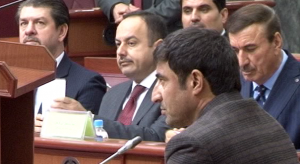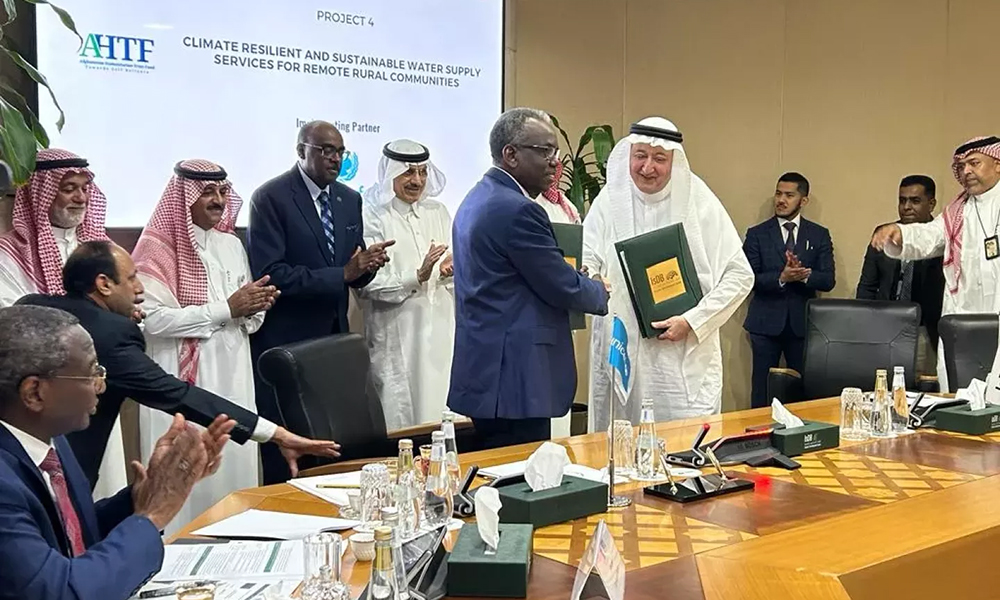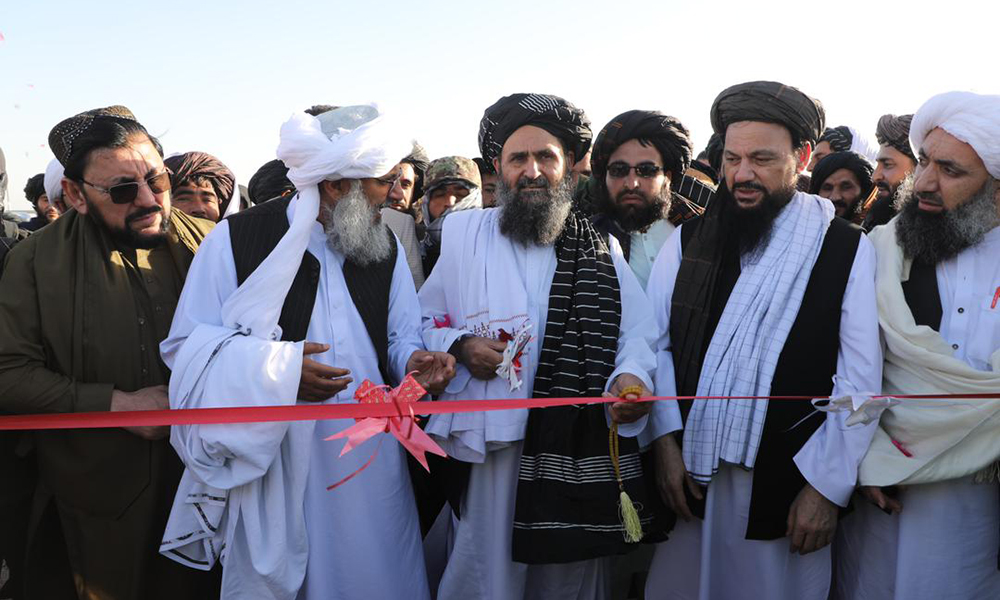Latest News
Finance Minister Submits Draft Budget of 1396 to Lower House

 The proposed draft budget for the solar year 1396, was presented today to the National Assembly by the finance minister for consideration and discussion.
The proposed draft budget for the solar year 1396, was presented today to the National Assembly by the finance minister for consideration and discussion.
Afghan finance minister, Eklil Hakemi says the draft budget for the next fiscal year is 466 billion AFN which 287 billion allocates to the ordinary budget and 178 billion to the development budget.
The most costs dedicated to security, infrastructure, and training and agriculture sectors.
-36 % for security
-21 % for infrastructure
-13 % for education
-6 % for agriculture
Finance minister noted that the rate of Afghanistan’s economic growth was 2,9 in the current year and the figure is predicted to be 3,5 and 4 for the next two years.
Eklil Hakemi has also said about the domestic revenue that 150 billion AFN is predicted for the upcoming year.
According to Hakemi, the draft budget for 1396 was prepared with the given balance, needs and priorities of development for the country.
“The next year’s budget prepared with regard to financial resources, including Afghanistan’s development programs, economic growth, consumption capacity of offices, within the framework of the Afghanistan National Development and Government’s commitment to the international community and the Afghan people,” said finance minister, Eklil Hakemi.
Finance minister further added that 177 new projects has considered for development budget of next year which is mostly in infrastructure, agriculture, education and health sectors.
However, a number of parliament members called some of the costs of this budget ‘imaginary’.
“The budget should not be imaginary and ministers must not be questioned,” said Khalilulah Shahid Zada, representative of Herat.
Abdul Qader Qalatwall, Member of Parliament has also said, “Justice has not been considered the draft should be rejected.”
Finance minister called the lack of spending development budget one of the serious problems.
He considered the lack of detailed office plans, weak capacity of administrative, weakness in the control of projects, lack of responsibility, corruption and interventions of powerful the main reasons for spending development budget.
Reported by Lida Neyazi

Latest News
Minister of mines says minerals must be processed in Afghanistan before exported

Acting Minister of Mines and Petroleum Shehabuddin Delawar has said in a meeting with officials of a Chinese company that the export of raw minerals for processing abroad is no longer allowed.
He said the ministry will work with foreign mining companies as long as they also process the minerals in Afghanistan.
Delawar said this during a meeting with China’s state-owned company MCC Holoda, and Chinese officials from the company contracted to extract copper from Mes Aynak.
The Ministry of Mines and Petroleum said in a statement that MCC Holoda is one of the largest mining and processing companies in China for copper, lead and zinc.
According to the statement, the company has expressed an interest in investing in copper, lead and zinc mines in Afghanistan.
Delawar welcomed their interest and said there are lead and zinc mines in Bamyan, Kandahar and Ghor provinces, and if the company agrees to process minerals inside Afghanistan, the ministry will cooperate with it.
Delawar also discussed the Mes Aynak copper project and called for acceleration of work at the mine.
Latest News
Afghanistan Humanitarian Trust Fund report highlights problems tackled

Mohammad Jamal Alsaati, Special Advisor to IsDB President and IsDB Coordinator for Afghanistan Humanitarian Trust Fund (AHTF), said this week that 14 projects, signed in 2023, have materialized at a total cost of $35.35 million.
He said in a statement issued Sunday that of this, $24.14 was from contributions from AHTF with a further $12.21 million provided by implementing partners and other international organizations.
Alsaati said all the services provided have created job and capacity building opportunities for the people of Afghanistan and that as of March 2024, pledges to the fund totaled almost $35 million, with more funding expected.
Alsaati’s comments were in a statement issued by the Islamic Development Bank, (IsDB), after it released the first comprehensive report on the achievements of the AHTF.
The report highlights the coordinated efforts by the IsDB, its partners, and stakeholders towards “Promoting Self Reliance and Resilience” in Afghanistan.
The AHTF’s mission is to provide initial humanitarian aid but then to prioritize development and self-reliance to move beyond emergency assistance – promoting reconstruction, empowerment and sustainable development.
IsDB President and Group Chairman, Muhammad Al Jasser meanwhile said following the release of the report that after receiving generous contributions, the AHTF “sprung into action, delivering essential aid to Afghanistan’s most vulnerable communities.”
He said the fund was able to tackle food insecurity, offer child nutrition programs, provide healthcare, innovative education, clean water, sanitation and hygiene services.
“Our projects are making a tangible difference on the ground,” Jasser said.
The Secretary General of the Organization of Islamic Cooperation (OIC), Hissein Brahim Taha also reacted to the report and said: “We are very pleased to see several humanitarian and development-focused projects are underway in Afghanistan – driven by the IsDB in collaboration with its regional and global partners.
“But much work still lies ahead, so we look forward to further help and support from our Member States, in addition to continued financial assistance for the AHTF from international aid and relief agencies,” said Taha.
The fund was established at a Council of Foreign Ministers of the OIC on 19th December 2021.
Latest News
Baradar visits Pashdan Dam, as work on project resumes

Mullah Abdul Ghani Baradar, deputy prime minister for economic affairs, has said the Pashdan Dam in Herat province is a key national project that the Islamic Emirate is committed to completing as soon as possible.
Speaking at an event marking the resumption of construction on this hydroelectric dam, which was started more than 10 years ago, Baradar said building dams was a priority for the Islamic Emirate.
Once complete the Pashdam Dam will not only generate electricity but also irrigate about 65,000 hectares of agricultural land, in turn providing work to thousands of people.
The dam will cost an estimated $117 million once finished and according to officials, at least 85% of work has been completed.
Officials expect the dam to be operational by the end of this solar year.
The construction of Pashdan Dam is being carried out by a domestic company in cooperation with an Azerbaijani company.
Engineers said the dam will mostly be used for agriculture purposes and for potable water. They also said about 73 kms of canals will be built to irrigate land.
This dam will store 54 million cubic meters of water. Currently, about 400 people are employed to work on the project.
-

 Sport3 days ago
Sport3 days agoAfghanistan beat Iraq 5-3, inch closer to Futsal World Cup berth
-

 Regional3 days ago
Regional3 days agoNew UK sanctions target Iranian drone industry
-

 Regional4 days ago
Regional4 days agoTurkey accuses U.S. of double standards over Gaza in rights report
-

 Latest News3 days ago
Latest News3 days agoEU allocates 17 million euros to support Afghans on the move
-

 Latest News2 days ago
Latest News2 days agoPakistan extends registered Afghan refugees’ stay till June 30
-

 World4 days ago
World4 days agoUS student protests over Gaza intensify despite arrests
-

 Regional3 days ago
Regional3 days agoChina to host Hamas, Fatah for Palestinian unity talks
-

 Sport1 day ago
Sport1 day agoAfghanistan qualify for FIFA Futsal World Cup for first time ever
















